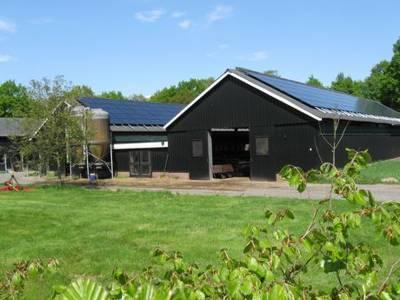Organic
 The goats on our farm are raised entirely organically. This means that we must follow the guidelines set up by Skal for this purpose. Regulations for organic products consist of European laws, Dutch legal texts and Skal regulations. These can be found through the website of
Skal
. Some examples of rules we must follow:
The goats on our farm are raised entirely organically. This means that we must follow the guidelines set up by Skal for this purpose. Regulations for organic products consist of European laws, Dutch legal texts and Skal regulations. These can be found through the website of
Skal
. Some examples of rules we must follow:
- A maximum of 40% of the ration may consist of concentrates
- The goats must have at least 1.50 m² of pen space per animal (ours is even 2 m²)
- At least 60% of the feed must come from own farm or region
